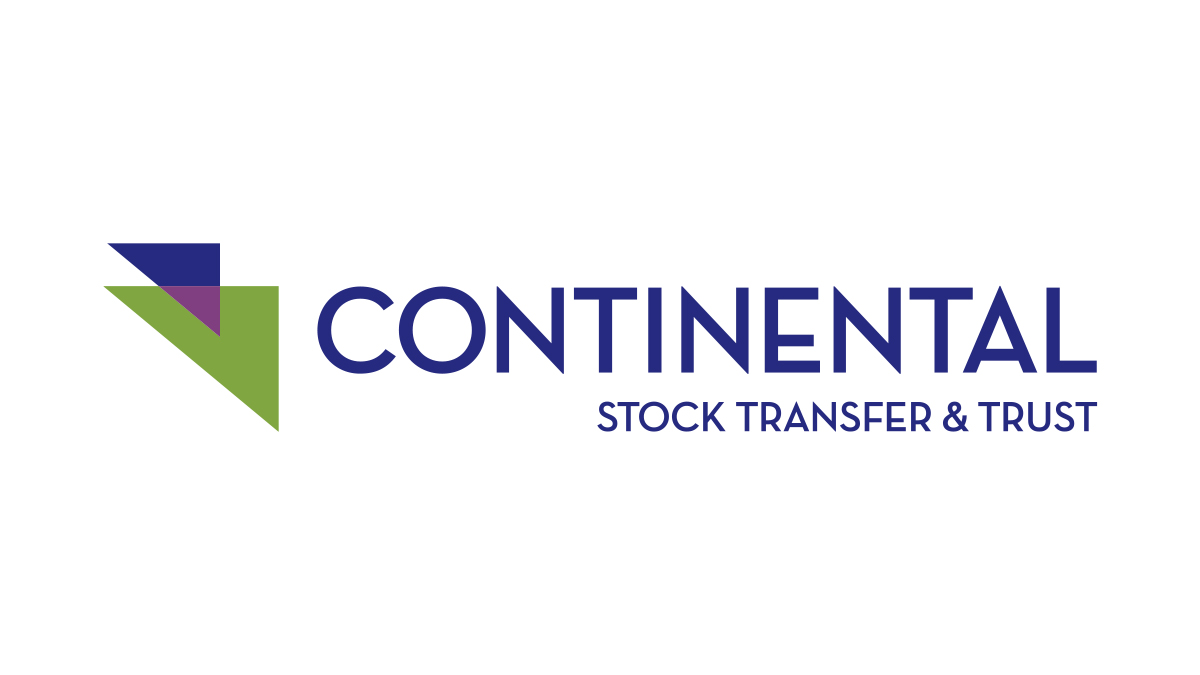Continental Stock Transfer And Trust Company

The intricate machinery of corporate finance often operates behind the scenes, unnoticed until a critical juncture demands meticulous execution and unwavering trust. Increasingly, scrutiny is falling upon Continental Stock Transfer & Trust Company, a firm that plays a pivotal, yet largely invisible, role in the financial ecosystem. Recent high-profile corporate actions and ongoing market volatility are placing the company under a microscope, raising questions about its practices and responsibilities.
Continental Stock Transfer & Trust Company serves as a crucial intermediary, managing shareholder records, processing dividend payments, and executing corporate actions like mergers, acquisitions, and stock splits. The company's performance directly impacts millions of shareholders and the smooth functioning of the capital markets. This article delves into the operations of Continental Stock Transfer, examining its role, recent controversies, and the challenges it faces navigating an increasingly complex regulatory environment, providing a comprehensive look at a vital, yet often overlooked, player in the world of finance.
The Role of a Stock Transfer Agent
At its core, Continental Stock Transfer is a stock transfer agent. This means it acts as the record keeper for a company's shareholders. They maintain accurate and up-to-date information on who owns what, ensuring that shareholders receive their dividends and proxy materials.
The firm also plays a key role in corporate actions. When a company merges with another, or splits its stock, Continental Stock Transfer manages the complex process of updating shareholder records and issuing new shares.
Furthermore, the company also offers additional services, including proxy solicitation and escheatment processing. These services streamline corporate governance and compliance.
Recent Scrutiny and Controversies
Continental Stock Transfer has faced increased scrutiny recently. Several high-profile corporate actions involving companies they service have drawn attention to their practices.
One such case involved a special purpose acquisition company (SPAC) merger. Shareholders of the target company reported delays and complications in receiving their shares post-merger.
This led to complaints about communication and efficiency, raising concerns about Continental Stock Transfer's ability to handle complex transactions smoothly.
Furthermore, some investors have alleged discrepancies in shareholder records. These allegations, though unproven, have further amplified the scrutiny on the company.
In response to the allegations, Continental Stock Transfer has maintained that it adheres to all regulatory requirements and strives to provide efficient and accurate services. They’ve also stated their willingness to cooperate with any regulatory inquiries.
Navigating Regulatory Landscape
The stock transfer industry is heavily regulated. The Securities and Exchange Commission (SEC) oversees the operations of transfer agents like Continental Stock Transfer.
The SEC regulations are designed to protect investors and ensure the integrity of the capital markets. These regulations cover a wide range of activities, from record-keeping to processing dividend payments.
Furthermore, these regulations also require transfer agents to implement robust cybersecurity measures to protect shareholder data. As cyber threats become more sophisticated, compliance with these regulations is increasingly important.
Continental Stock Transfer must continuously adapt to evolving regulations. The SEC is constantly updating its rules to address new challenges and technologies.
Failure to comply with these regulations can result in penalties, including fines and sanctions. This highlights the importance of a strong compliance program.
The Impact of Technology
Technology is transforming the stock transfer industry. Automation and digitization are streamlining processes and improving efficiency.
Continental Stock Transfer has invested in technology to enhance its services. Online portals and automated systems are making it easier for shareholders to access information and manage their accounts.
However, technological advancements also bring new challenges. Maintaining data security and protecting against cyberattacks are critical priorities.
The use of blockchain technology is also being explored. While still in its early stages, blockchain has the potential to revolutionize the stock transfer process by increasing transparency and reducing costs.
Perspectives on Continental Stock Transfer
Industry analysts hold varied perspectives on Continental Stock Transfer. Some praise its longevity and experience in the market.
They highlight the company's extensive client base and its ability to handle complex transactions. Others express concern about recent controversies and the potential for reputational damage.
Shareholders also have different opinions. Some are satisfied with the services provided, while others have expressed frustration with delays and communication issues.
Ultimately, the perception of Continental Stock Transfer depends on individual experiences and expectations. Transparency and effective communication are crucial for building trust and maintaining positive relationships with all stakeholders.
Looking Ahead
The future of Continental Stock Transfer will depend on its ability to address current challenges and adapt to the evolving financial landscape. Maintaining regulatory compliance and investing in technology are essential.
Strengthening communication with shareholders and addressing concerns promptly are crucial for rebuilding trust. A commitment to transparency and accountability will be key to the company's long-term success.
As the financial markets continue to evolve, Continental Stock Transfer must position itself as a reliable and efficient partner. This requires a proactive approach and a focus on continuous improvement.
Ultimately, the success of Continental Stock Transfer is intertwined with the health and stability of the capital markets. By upholding its responsibilities and providing high-quality services, the company can play a vital role in supporting economic growth and investor confidence.


















